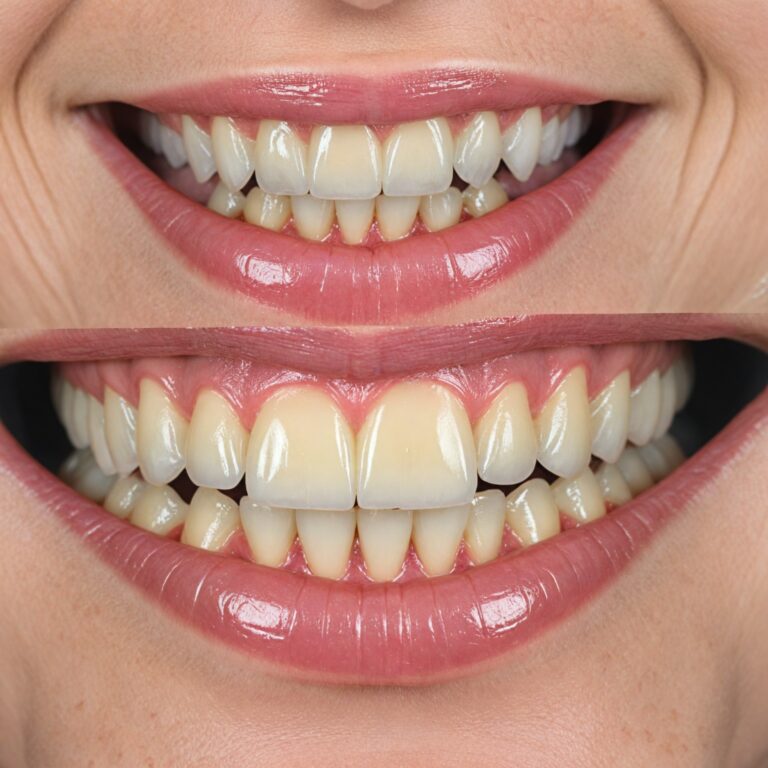Plaque: The Hidden Enemy of Your Smile is more than just a nuisance; it’s a threat to your oral health. Plaque is a sticky, colorless biofilm that forms on your teeth from bacteria, food particles, and fluids. Left unchecked, plaque can cause tooth decay, gum disease, and even lead to tartar formation, making it more difficult to remove. In this article, we’ll discuss why plaque is the hidden enemy of your smile, how to prevent it, and natural remedies to combat it.
What is Plaque and How Does It Form?
Plaque: The Hidden Enemy of Your Smile forms every time you eat, and it’s often invisible to the eye until it starts to build up. This buildup contains bacteria that feed on the sugars and starches in your food. As these bacteria digest the sugars, they release acids that erode tooth enamel, leading to cavities and gum irritation. If plaque isn’t removed through regular brushing and flossing, it hardens into tartar, which can only be removed by a dentist.
Learn more about how plaque and tartar affect your oral health and how plaque is a silent threat to your smile.
Plaque vs. Tartar: Understanding the Difference
While plaque is soft and easy to remove with proper brushing and flossing, tartar is much more stubborn. Once plaque hardens into tartar, it becomes calcified and requires professional dental treatment to remove. The risk of tartar goes beyond just cosmetic issues—it can lead to periodontal disease and contribute to other health problems such as heart disease and diabetes.
Early Signs of Plaque Buildup
Look out for these warning signs to catch plaque early:
- Sticky feeling on your teeth
- Bad breath
- Red, inflamed gums
- Tooth sensitivity
If you’re interested in learning about the benefits of other natural cleaning methods, take a look at these tips for using baking soda in various applications.
Daily Oral Care to Prevent Plaque
To effectively prevent plaque buildup, consistency is key. Here’s what you should include in your daily routine:
- Brush your teeth twice a day for at least two minutes, using fluoride toothpaste.
- Floss daily to remove plaque between teeth and under the gumline.
- Use an antibacterial mouthwash to kill lingering bacteria.
- Schedule regular dental cleanings every six months to remove tartar.
For those exploring a holistic approach to well-being, adding a routine like oil pulling with coconut oil can help break down plaque while improving gum health.
Natural Remedies to Combat Plaque
Incorporating natural remedies into your oral hygiene routine can help boost your fight against plaque. Here are some tried and tested options:
- Orange Peel: Rub the inside of an orange peel on your teeth to remove plaque naturally and freshen your breath.
- Cloves with Olive Oil: Create a paste from crushed cloves and olive oil, and apply it to your teeth to reduce bacterial buildup.
- Sesame Seeds: Chewing raw sesame seeds acts like a natural toothbrush, scrubbing away plaque from your teeth.
For more ideas on incorporating natural remedies into your daily life, check out this guide on the benefits of growing mint at home, which can also be used to freshen your breath.
The Importance of a Healthy Diet
What you eat plays a significant role in plaque formation. Sugary and starchy foods fuel the bacteria in plaque, accelerating the acid production that causes enamel erosion. Here are some dietary tips to help keep plaque at bay:
- Eat fiber-rich fruits and vegetables that help clean your teeth naturally.
- Avoid sugary snacks and drinks, which can encourage plaque growth.
- Stay hydrated, as saliva helps wash away food particles and plaque.
Future Innovations in Plaque Prevention
As technology advances, so do the tools we use to prevent plaque. Electric toothbrushes, water flossers, and even probiotics designed to promote oral health are making plaque prevention more effective than ever. Regular dental checkups remain essential, but with the right tools and habits, you can significantly reduce your risk of plaque buildup.
FAQs
How fast does plaque form on teeth?
Plaque can start forming just 4 to 12 hours after brushing. That’s why it’s important to brush at least twice a day.
Can you remove tartar at home?
No, once plaque hardens into tartar, only a dental professional can remove it through a process called scaling.
How does plaque contribute to gum disease?
Plaque irritates the gums, causing inflammation, redness, and bleeding, which can eventually lead to gingivitis and periodontitis.
Can diet help in reducing plaque formation?
Yes, consuming less sugar and starch, eating fiber-rich foods, and staying hydrated can all help in reducing plaque buildup.
In conclusion, plaque may be a hidden enemy, but with daily care and regular visits to your dentist, you can keep it under control. Incorporating natural remedies and staying mindful of your diet can also boost your oral health and prevent long-term damage. For more holistic health and natural remedy tips, don’t forget to explore resources like how to apply cabbage leaves for natural remedies.
By staying vigilant, you can maintain a healthy, vibrant smile.
